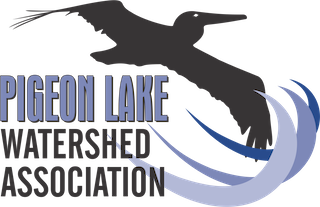CreekWatch
Call for community science volunteers!
CreekWatch monitors the creeks in our watershed by having community scientists collect samples from creeks and outfalls around Pigeon Lake. These samples are tested at a lab for water chemistry and pollutants and will help determine nutrient loading and the impact of surrounding land use.
To collect creek samples
Join PLWA staff to take samples from our 9 sample sites once a month during the summer.
Once you sign up, volunteers will receive training resources, supplies, and guidance.
Scheduled sampling dates:
May 27
June 29
July 29
August 17
Results
Comparative Data (2013-2023)
Please keep in mind that CreekWatch is a new program (2022), and will take years of consistent sampling to determine a baseline and observe patterns and changes.
Map of sampling locations can be found here
*note TC#1 is no longer sampled, in lieu Zeiner Creek has been added
2023 Results
This year all samples will be analyzed by Bureau Veritas and Dr. Hanington
2022 Results
5 Sampling events took place in 2022 over March, June, July, August and September.
March freshet and June samples were sent to Bureau Veritas Lab to be analyzed for chemical concentrations adjunct to lake health
View the analysis from Bureau Veritas
Summary of Bureau Veritas Analyses: coming
June, July, August and September samples were sent to Dr. Patrick Hanington’s Lab at the University of Alberta to be analyzed for fecal pollution targets.
Summary of Dr. Hanington’s Findings: In 2022 water samples were taken from 9 creeks and outfalls around Pigeon Lake during 4 sampling events. Those samples were analyzed for 3 fecal pollution targets: Enterococcus - general fecal bacteria indicator, RumBac - ruminant fecal bacteria marker, and HF183 - human fecal bacteria marker.
Every sample possessed detectable enterococcus (general fecal bacteria indicator) which is expected for a natural water body. The generally accepted recreational water guidelines for enterococcus are 1280GE/100ml (genome equivalents/100ml). A single water sample collected in 2022 exceeded 1280GE/100ml. This sample (2243.4 GE/100ml) was collected from site TC-2 (Tide Creek - Range Road 22) in July.
Rumbac (ruminant fecal bacteria marker) was detected in several samples, most often SHC (Sunset Harbour Creek) and TC (Tide Creek). The amount is not quantified, just that the bacteria is present.
Hf183 (human fecal bacteria marker) was omitted from the results as it was not detected in any samples.
Thank you to the Summer Villages of Norris Beach and Poplar Bay for providing financial support to CreekWatch



